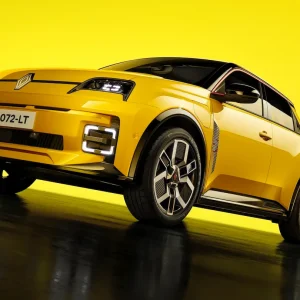Managers set on specifying the cleanest possible vehicles for their fleets need to make sure they get hold of the most detailed information available on emissions.
That was one of the messages to come out of a Westminster Energy, Environment and Transport Forum Keynote Seminar on improving air quality.
Addressing concerns about NOx and particle emissions in built up areas, Nick Molden, founder and CEO of Emissions Analytics, told delegates he believed that talk of new technological breakthroughs to solve the problem was misplaced, as the technology needed was already out there.
He said, “To meet the air quality goals we have on the timetable required doesn’t really require any more innovation.
“The solutions are there under our nose, we just don’t know that they’re there, and it’s a market solution that’s required to reveal those solutions.
“What we don’t want is having to plough a lot of resource and expertise into a problem that has already been solved in NOx emissions and particle emissions.”
Molden explained that his firm conducts independent real-world tailpipe emissions testing, and this had tracked recent improvements in the best diesel cars amid a huge variance between these and the worst on the market.
He said that, in 2013, the 10% dirtiest diesel cars tested emitted 1,777mg/km of NOX, while the cleanest were emitting 265mg/km – still well above the regulatory limit of 80mg/km.
However, testing in 2017 found that while the 10% dirtiest were still at 1,020mg/km, the 10% cleanest were at 32mg/km.
Molden added that since the introduction of the Real Driving Emissions regulation last year, the picture had improved still further, with average NOX emissions from new diesel cars of 48mg/km, and a new record low of 12mg/km recently recorded.
He said, “The cleanest diesels are now very much equivalent in NOX emissions to petrol cars.
“Dramatically reduced tailpipe emissions are there, and some of them are on the road today. It’s just when you go into the dealership you don’t know which you’re buying, and so it’s an information and market problem, that’s where the innovation is needed.”
Molden added the counterpart to this was that petrol cars were not a ‘get out of jail free card’.
He said, “At the moment, because everyone has lost faith in diesel vehicles, people are either holding on to their older cars – generally a bad idea for emissions – or switching to petrol vehicles.
“It’s a very small proportion of people who are actually switching to hybrids or EVs. The big numbers are in a switch from diesel to standard, unhybridised petrol.”
Molden said while the average diesel car emission of 400mg/km was substantially worse than 40mg/km for petrol, if buyers used available data to select one of the cleanest diesels then the pendulum swung the other way.
“If the consumer choice is between an average petrol and one of the cleanest diesels, actually the diesel is the dominant technology,” he said.
“It’s slightly cleaner on NOX, it’s 18% less on CO2 and it’s 71% less on particle numbers.”
Citing his firm’s test results, Molden argued that just looking at a Euro 6 classification was not enough to be sure a vehicle was clean, and that information such as that provided by his firm – published online as the EQUA Index – needed to be considered by buyers in order to gain a true picture.
However, Andy Eastlake, managing director of the Low Carbon Vehicle Partnership, defended Euro 6, and said while information was important there was a need not to overwhelm vehicle buyers.
He said, “We are in danger of scaring all of the people who buy these vehicles and use these vehicles with the amount of change, the amount of information we’re trying to ram into them, so we have to simplify the messages and try to consolidate all of the policies we’re trying to deliver, and help people select the right, cleanest tool for the job that they are able to buy.
“I believe the Euro 6 regulations we have now are capable and are easy to articulate and deliver what we need in terms of communicating to the consumers.
“What I would support Nick on is that actually the technology that we need to clean up our existing fleet and the current combustion fleet while we transfer and renew our fleet with the best zero-emission vehicles exists.”





